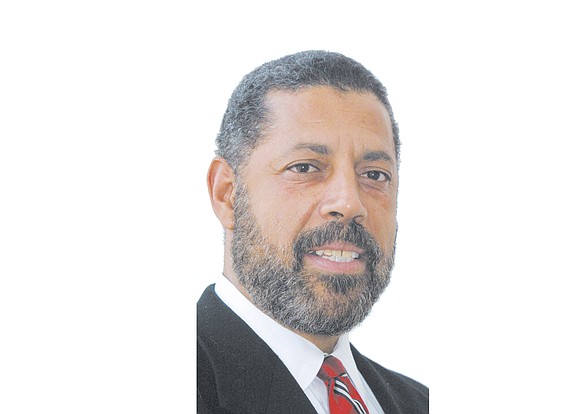Black Business Alliance calls for inclusion in city-supported projects
Jeremy M. Lazarus | 7/1/2018, 11:06 a.m.
A. Hugo “Al” Bowers Sr. is leading a fresh charge to ensure that black-owned businesses gain a significant share of work on construction projects that the city pays for or infuses with taxpayer support.
The president and chief executive of the 180-member Black Business Alliance of Virginia he founded several years ago, Mr. Bowers is revving up the effort as Mayor Levar M. Stoney and his staff prepare to promote a $1.3 billion development that would bring a new coliseum, hotel and 2,800 apartments to Downtown.
The Free Press reported last week on the development plans spearheaded by Thomas F. “Tom” Farrell, chairman, president and chief executive officer of Dominion Energy, but which have not included a single mention of African-American inclusion.
“We want to make sure we are not left out of the economic boom that is going on,” Mr. Bowers said. “From now on, we want a seat at the table on every development project to discuss how we are going to included.
“For the moment, we’re taking a diplomatic approach,” he said, noting that organization members recently met with P. Lee Downey, the city’s chief development officer, and Pat Foster, director of the city’s Office of Minority Business Development, to discuss inclusion.
Mr. Bowers would not disclose the substance of the conversations other than to say he is “hopeful” they will lead to increased business.
Mr. Downey and Ms. Foster did not respond to requests for comment.
Head of Bowers Corp., a family-owned development, construction management and construction business that he operates with his children, Mr. Bowers is the first leader of a black Richmond business group to step forward and publicly fire up the issue of economic justice and inclusion in current city projects.
In his view, Richmond should have a target of ensuring at least 20 percent inclusion of African-American businesses in all developments in which the city has some involvement.
Amid rising employment, falling unemployment and a boom in development, the issue of black business inclusion in city projects seems to have fallen off the radar, and “we can’t let that go on,” Mr. Bowers said.
Mayor Stoney has rarely mentioned the issue since taking office.
A Free Press request filed last week to Mr. Downey and Ms. Foster under the Freedom of Information Act for data on city spending with black-owned and other minority-owned businesses has gone unacknowledged.
A search of the city’s website did not turn up any annual reports on city minority business spending, The only report Ms. Foster’s office lists on its website is a 2013 internal city audit recommending ways the office could improve its work.
The issue of black business inclusion also rarely comes up at City Council’s Finance and Economic Development Committee. Council Vice President Cynthia I. Newbille, 7th District, who heads the committee, has not publicly asked for regular monthly reports from the administration on what it is doing on that front, how many black-owned businesses are working on projects and how many city residents have gained employment on city-backed or supported projects.
Dr. Newbille did not respond to an emailed Free Press request for comment.
Nor is it a clear whether the Minority Business Enterprise/Emerging Small Business Advisory Board that City Council appoints is active.
There have been complaints about black-owned businesses being cut out of city projects, particularly after larger white contractors win bids.
For example, a black-owned concrete company head told the Free Press that they were in line to receive a major chunk of the work overhauling a stretch of East Main Street from a general contractor that responded to the city’s bid. The black-owned business was listed as a major subcontractor on the $13 million project.
But after the general contractor won the bid, the owner said his company largely was cut out of the work. Overall, his company received several hundred thousand dollars, far short of the roughly $3 million in promised work, and found little support from the city government in seeking redress.
Earl Bradley of Bradley Development, a consulting firm, has been pushing for greater attention to African-American inclusion, particularly on the East End housing development on the site of the former Armstrong High School and other projects spearheaded by the Richmond Redevelopment and Housing Authority.
He repeatedly has raised questions about violations of federal and state laws and local policies that call for inclusion of public housing residents and businesses that hire such residents or locate in such communities.
Mr. Bradley said the more than 250 houses and apartments to be built on the Armstrong site could be a shining example of economic justice and job creation.
Mr. Bradley, an associate member of the BBAVA, remains concerned that RRHA and City Hall will miss the opportunity for inclusion. He said he worries because of what has happened with a nearby development of a new grocery store-apartment-retail-culinary school complex at 25th Street and Nine Mile Road.
While the city provided taxpayer dollars to support the development spearheaded by Richmond philanthropists Steve and Kathie Markel, no requirements were imposed to ensure African-American inclusion in the construction work.
The city and the developer acknowledge that the project has yielded little in the way of construction work for black-owned companies, although area residents are among those being interviewed for 90 to 100 jobs to be filled at the grocery store that is to open this winter.







